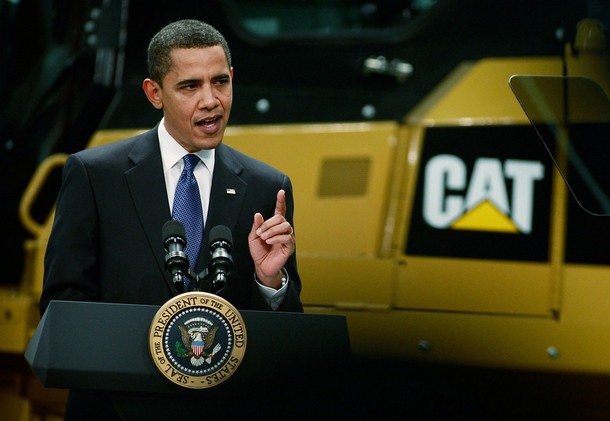G20 host Obama under pressure: Is US serious about reform?
 Washington - As President Barack Obama prepares to host leaders of the world's 20 leading economies next week, some countries are beginning to ask a serious question: Has the United States really learned the lessons of the financial crisis?
Washington - As President Barack Obama prepares to host leaders of the world's 20 leading economies next week, some countries are beginning to ask a serious question: Has the United States really learned the lessons of the financial crisis?
There are grumblings in foreign capitals: the European Union believes the US is not serious about reforming its regulatory system and needs to map out a clear "exit strategy" for its massive stimulus measures; China has concerns about Washington's skyrocketing budget deficit, which will top 11 per cent of US economic output this year.
This was meant to be Obama's moment. The Group of 20 (G20) summit, which will be held September 24-25 in Pittsburgh, Pennsylvania, could have been a chance to highlight a job well done.
The global economy is showing signs of life after its first recession since World War II. The financial sector is stabilizing after a year of turmoil that was brought on by the September 2008 collapse of US investment giant Lehman Brothers.
Germany, France and Japan all returned to growth in the second quarter of 2009. The United States is widely expected to follow suit in the coming months. China, India, Brazil and other emerging economies have seen smaller-than-expected fallout from the crisis.
Obama chose Pittsburgh as the site of the summit to highlight the US economy's potential for change: the city has transformed itself from a flagging steel producer into a hub for health-care companies.
Yet with the crisis waning, other countries are growing frustrated with the pace of financial reforms in the United States. Europe wants this summit - unlike previous G20 meetings in Washington and London - to focus largely on curbing Wall Street's excesses.
Steven Schrage, who heads international business research at the Centre for Strategic International Studies (CSIS), said leaders will be looking for assurances from Obama that there is still a sense of urgency about reforming the system before the next crisis.
"What's really different about Pittsburgh, and what will make it a defining moment, is that this will really be the first time the ball is in Obama's court," Schrage said.
Obama does have a broad plan. His administration has proposed reforms touted as the most significant overhaul of the country's financial regulatory structure since the 1930s. It includes closing gaps in oversight, more powers for the Federal Reserve and a new financial consumer watchdog agency.
"As the United States is aggressively reforming our regulatory system, we're going to be working to ensure that the rest of the world does the same," Obama said this week.
But Congress is preoccupied with a vicious debate over health care, which Obama wants to see passed by the end of the year. Financial reforms, as well as legislation on curbing climate change, have slipped down the agenda.
"I think there is an awful lot of falling off of attention," said Robert Hunter, a former NATO ambassador now with the US-based RAND Corporation. "There's more pressure at the EU than there is in the United States."
Europeans are indeed leading the charge for concrete commitments that would clamp down on the kind of Wall Street greed that has been blamed for the crisis. At a preparatory summit Thursday in Brussels, the EU declared that countries should limit bonuses that can be paid to bank executives.
The White House opposes strict curbs on bonuses, though Obama does want to see greater oversight of executive salaries. Many banks had incentives in place that rewarded risky behaviour by investors.
Obama would prefer to focus on setting capital requirements for banks - something less controversial and more likely to be agreed at the G20.
The US is under pressure to begin stepping back from its massive injections of public cash into the economy and unprecedented interventions in the country's financial firms.
Obama has said the "necessity is waning" for such drastic measures, and the Federal Reserve has begun the process of closing down lending programmes for banks as the demand slows. But the US has resisted the kind of spelled-out exit strategy that is being demanded by the EU.
The economic recovery could be a mixed blessing for the Obama administration as more divisive issues are now bubbling to the surface. With fears of another Great Depression gone, "you get back to things that were set aside" at past summits, said Hunter. (dpa)